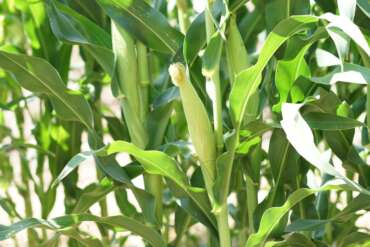Evidence is essential to help policymakers and development actors to make informed-decisions and to implement appropriate actions, especially in sensitive areas such as food and nutrition security (FNS). Evidence can be scientific (statistical data, evaluation results, research findings) or non-scientific (citizens' opinions, endogenous beliefs and knowledge).
Unfortunately, policymakers and development actors such as non-governmental organisations (NGOs) make very little use of evidence due to technical constraints related to accessing, collecting, understanding, and using evidence.
ACED, in partnership with 3ie supported by USAID and Save The Children, is implementing a capacity building initiative for non-governmental organisations (NGOs) in West Africa on accessing, understanding and using evidence. The initiative aims to :
- Collect data to inform the current state of NGO capacity to access, understand and use evidence in the design and implementation of interventions in the field of FNS;
- Identify the needs for capacity building of NGOs in order to develop a technical guide and online course that would help them access, understand and use evidence in the design and implementation of FNS interventions;
- Select 25 NGOs working in the field of FNS in Francophone West Africa and engage them in a pilot programme of capacity development to access, understand and use evidence in the design and implementation of FNS interventions.
A call for expression of interest was launched and we received a total of 1070 applications from West African NGOs.
!function(){"use strict";window.addEventListener("message",(function(e){if(void 0!==e.data["datawrapper-height"]){var t=document.querySelectorAll("iframe");for(var a in e.data["datawrapper-height"])for(var r=0;r<t.length;r++){if(t[r].contentWindow===e.source)t[r].style.height=e.data["datawrapper-height"][a]+"px"}}}))}();
After clearance, 880 NGOs were selected for the applications evaluation phase. Among the 880 NGOs active in the field of FNS, 87% are national organisations. From this community of NGOs, we learned the following:
- For the majority of NGOs, evidence refers to research results, statistical data and evaluation results of projects or programmes. They use evidence to support the design and implementation of health interventions.
- Access to evidence has been identified as the main challenge limiting their use by NGOs,
!function(){"use strict";window.addEventListener("message",(function(e){if(void 0!==e.data["datawrapper-height"]){var t=document.querySelectorAll("iframe");for(var a in e.data["datawrapper-height"])for(var r=0;r<t.length;r++){if(t[r].contentWindow===e.source)t[r].style.height=e.data["datawrapper-height"][a]+"px"}}}))}();
- The capacity of NGOs to use evidence is limited, although the majority have at least one person on staff who can collect and analyse data.
For capacity building of NGOs on accessing, understanding, and using evidence in the field of FNS, a technical guide is being developed. This guide will outline the programme/project cycle in the field of FNS and opportunities for evidence use at each level of the cycle. It will detail the different types of evidence, the different sources and how to access these sources effectively. Based on the technical guide, an online course is also being developed for NGOs capacity building. The fact that most NGOs have a person in charge of data collection and analysis is an opportunity for capacity building.



